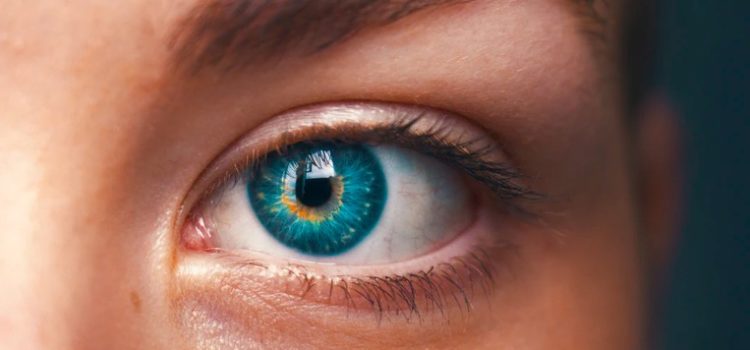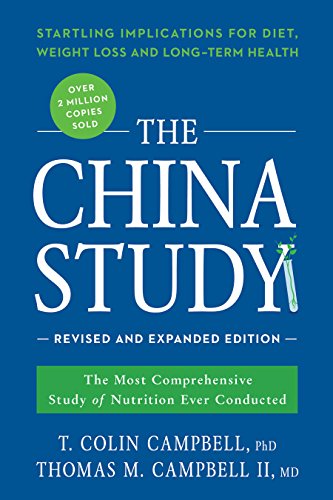

This article is an excerpt from the Shortform summary of "The China Study" by Colin Campbell. Shortform has the world's best summaries of books you should be reading.
Like this article? Sign up for a free trial here .
You’ve heard that carrots are a food that’s good for your eyes. Are there other foods that keep your eyes healthy? And how they work to prevent vision problems?
We’ll cover two common eye problems, macular degeneration and cataracts, and examine the research on how your diet affects your risk. Then, we’ll look at the best foods for eye health.
Vision Problems
Vision problems are common as we age, but can we avoid them? Before we look at specific foods that are good for eyes, let’s look at the research on how diet can affect eyesight.
Macular Degeneration
Macular degeneration affects over 1.6 million Americans and is a leading cause of blindness. The disease destroys the macula, which is responsible for transforming light into a nerve signal, the process that allows you to see. Unfortunately, this process also produces free radicals. These free radicals can damage the macula.
If this process is the same in everyone, and light hitting the eye always produces free radicals, why do some people develop macular degeneration and others don’t?
Diet and Macular Degeneration
Antioxidants combat free radicals. Some studies show that as much as 88% of blindness from macular degeneration could have been prevented if the people affected had consumed more antioxidants.
In another study, people with the highest levels of carotenoids in their blood reduced their risk of macular degeneration by two-thirds. Researchers have found particular benefits in carotenoids from spinach, collard greens, broccoli, carrots, winter squash, and sweet potato. These are some of the best foods for eye health.
Supplements did not confer the same benefits. The processes of various carotenoids working together are just too complex to put into a pill.
Cataracts
Cataracts are cloudy areas on the lens of the eye. Half of all Americans will have cataracts by age 80, but they’re less serious than macular degeneration because we have effective surgeries to remove the clouded lens and replace it with a new one.
Like macular degeneration, cataracts are associated with free radical damage. Consequently, we can help protect ourselves from the formation of cataracts, and avoid surgery, by eating a diet rich in antioxidants. In a study of 1,300 people, those who consumed the most lutein, an antioxidant found in spinach and dark, leafy greens, cut their risk of cataracts by half.
Foods Good for Eyes
To protect your vision as you get older, eat lots of these great foods for eye health:
- spinach
- collard greens
- broccoli
- carrots
- winter squash
- sweet potato
- citrus
Basic Principles for Healthy Vision
Principle #1: Various nutrients work together to achieve health.
No single nutrient is responsible for good eyesight. What matters most is how the various nutrients in foods work together to create change in the body and maintain good health. This is why eating whole foods rather than taking nutrition supplements is so important, which brings us to Principle #2.
Principle #2: Avoid supplements—get your nutrients from food, not pills.
Supplements are problematic because they’re poorly regulated, often have side effects, and aren’t always effective. Further, the way nutrients function in the body is complex, and it’s not always clear whether certain benefits come from a single nutrient or from the whole food, so you’re better off eating the whole food.
Principle #3: Genes alone don’t cause vision problems.
Genes only affect us when they’re activated, and diet is one of the biggest triggers of gene activation. This explains why, in populations made up of people who share a genetic heritage, disease rates vary widely. Some of these people are eating more foods that trigger the expression of genes that lead to disease. Researchers can actually turn “bad” genes on and off in mice by altering the amount of animal protein they feed them.
Eat foods that are good for the eyes and you’ll increase your chances of avoiding vision problems in the future.
———End of Preview———

Like what you just read? Read the rest of the world's best summary of "The China Study" at Shortform . Learn the book's critical concepts in 20 minutes or less .
Here's what you'll find in our full The China Study summary :
- Why animal proteins (meat, milk) might cause cancer, diabetes, and other diseases
- Why the medical institution is structured to hide the truth about disease and food
- The precise diet you'll need to eat to live longer and feel happier






